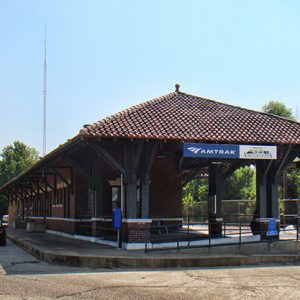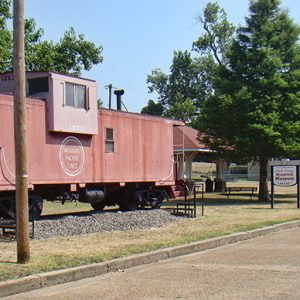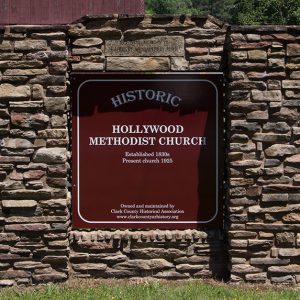calsfoundation@cals.org
Clark County Historical Association
The Clark County Historical Association (CCHA), a 501(c)(3) nonprofit organization since 1978, researches, preserves, and disseminates the county’s history. Brainchild of philanthropist Jane Ross and retired teacher Amy Jean Greene, it originated on October 30, 1972. A cross-section of county residents have provided leadership, including local politicians and representatives of both Ouachita Baptist and Henderson State universities. The association has remained egalitarian in membership and outlook, though membership (which averages about 250) has gone from a majority within to a majority outside the county.
With Ross Foundation financial assistance, Greene led the association for the first five years. Quarterly meetings, always Sundays at 2:00 p.m., occurred mostly in Arkadelphia (Clark County) churches, and featured interested amateurs talking about a wide variety of topics—the association has always defined “history” very broadly. Correspondents provided information from around the county for quarterly newsletters and a quarterly (later an annual) journal, for which Grace Benton Nelson provided most of the copy. The CCHA absorbed the local genealogical society while continuing its own interest in historical preservation and oral history. Greene ran the entire operation from her home, where she kept association records and files.
When Greene died in April 1977, Juanita Barnett provided Ouachita Baptist University library space for the records and files, beginning an ongoing relationship between the CCHA and the library; the Ross Foundation provided part-time secretarial help through annual grants. For almost a decade, the CCHA weathered lower membership numbers and deaths among initial leadership. But a few individuals offered consistent mid-level leadership. The association maintained connections with county public schools in an effort to interest the next generations in the county’s past. It acquired Arkadelphia’s oldest extant brick building in 1983 and faced over the next decade the difficulties of restoring a decrepit building. Journals, initially themed and reliant on “editorial committee” efforts, began to feature the work of by-lined authors, particularly high-school and university students, who provided about a third of each journal’s content.
During the 1990s, Ouachita Baptist University’s first trained archivist, Wendy Richter, changed journal format and content as editor (garnering statewide awards) and encouraged publications, including a county history. Although the CCHA continued to collect materials, began to meet monthly, and enlarged its board, it particularly emphasized expanded access as it preserved and indexed county records after Arkadelphia’s 1997 tornado. Its publications also provided much-needed income to supplement low membership fees.
Twenty-first-century leadership continued the many activities regarding historical preservation and access and realized the long-standing dream of a museum. In 2002, the association opened the Clark County Museum in the former Arkadelphia train depot, which had been given to the city, then enlarged the museum and added a caboose on adjacent land. The museum later became a entity separate from the CCHA in order to make fundraising easier for both organizations.
For additional information:
Clark County Historical Association. https://www.clarkcountyarhistory.org/ (accessed February 16, 2022).
Granade, Ray. “‘Our Many Projects’: Thirty Years of the Clark County Historical Association.” Clark County Historical Association Journal 2002: 1–32.
———. “‘Our Many Projects’ Redux: Fifty Years of the Clark County Historical Association.” Clark County Historical Association Journal 2022: 14–44.
Schnedler, Jack. “Museum Celebrates Clark County History.” Arkansas Democrat-Gazette, January 31, 2019, p. 4E. Online at https://www.arkansasonline.com/news/2019/jan/31/museum-celebrates-clark-county-history-/ (accessed December 6, 2022).
Richter, Wendy, ed. Clark County, Arkansas: Past and Present. Arkadelphia, AR: Clark County Historical Association, 1992.
S. Ray Granade
Ouachita Baptist University








Comments
No comments on this entry yet.